Mantenin wet planing method is introduced in detail, what are the characteristics of wet planing coffee beans? The story of the origin of wet planing.
Professional coffee knowledge exchange more coffee bean information please follow the coffee workshop (Wechat official account cafe_style)
For more boutique coffee beans, please add private Qianjie coffee on Wechat. WeChat account: qjcoffeex
Indonesia, a notoriously muggy region, because of its tropical rain forest climate, high temperature and rain throughout the year, low wind and high humidity, is not close to the humid and hot system of human beings, and it is also difficult to dry plants to such an extent that they are not prone to mildew.
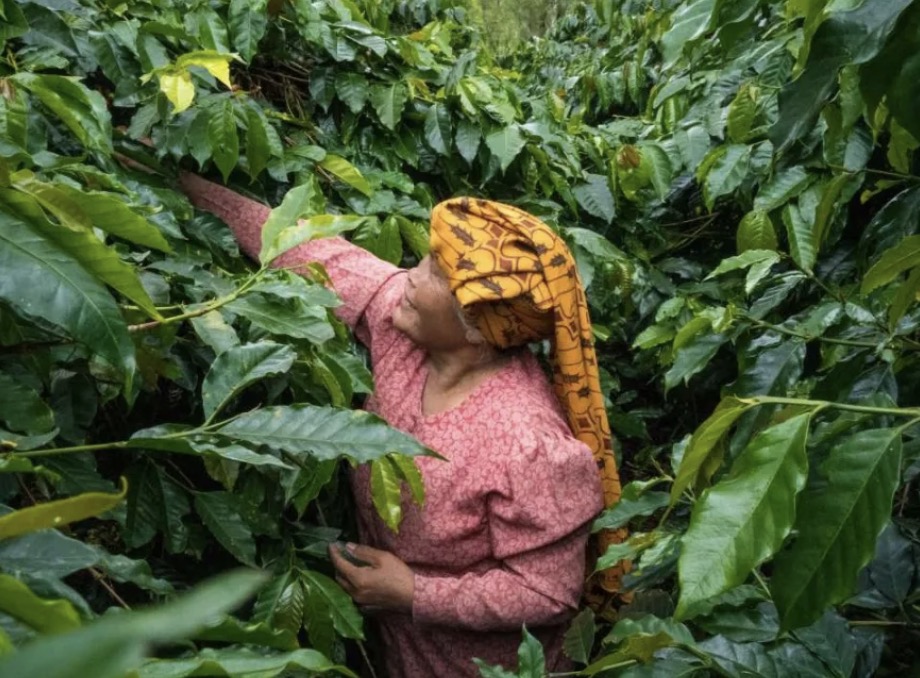
Unfortunately, Indonesia is also a large coffee producer, especially the Mantenin coffee grown in Sumatra, which has attracted the attention of the global coffee market, so how to improve the drying speed of mantenin coffee to avoid mildew in the drying process. Indonesian people have put a lot of effort into it.
If the conventional washing method is used to peel off the pulp and pectin after fermentation in the pool to reduce the drying time, but this practice is not environmentally friendly and requires a lot of water, and the fermented acidic water will also cause pollution to the environment.
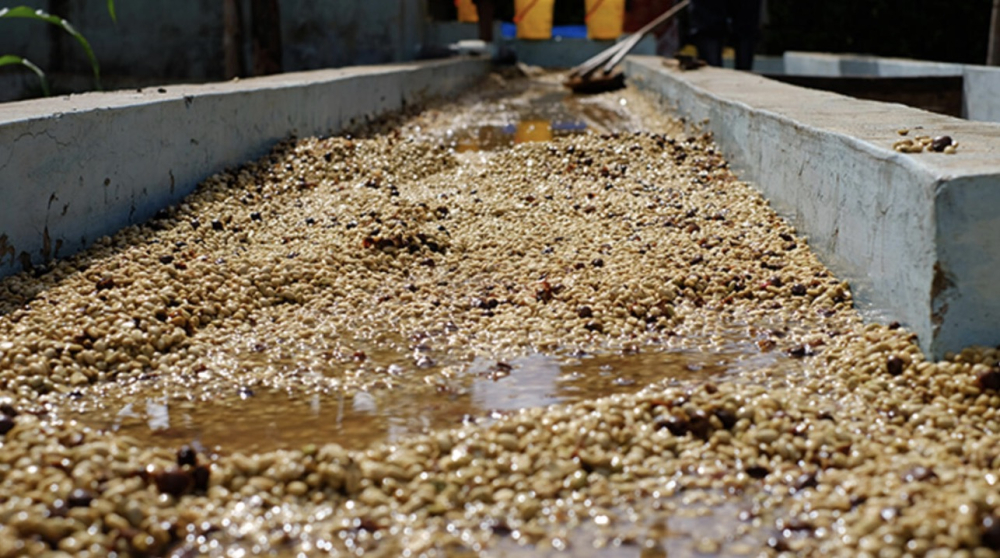
On the other hand, if the sun treatment is directly connected with the pulp, there is a requirement that the coffee fruit can not be dried to be stored. As a result, Indonesian people are very clever and combine the two methods into one, creating the wet planing method, also known as wet shelling (Wet Hulling), which is used only in Indonesia.
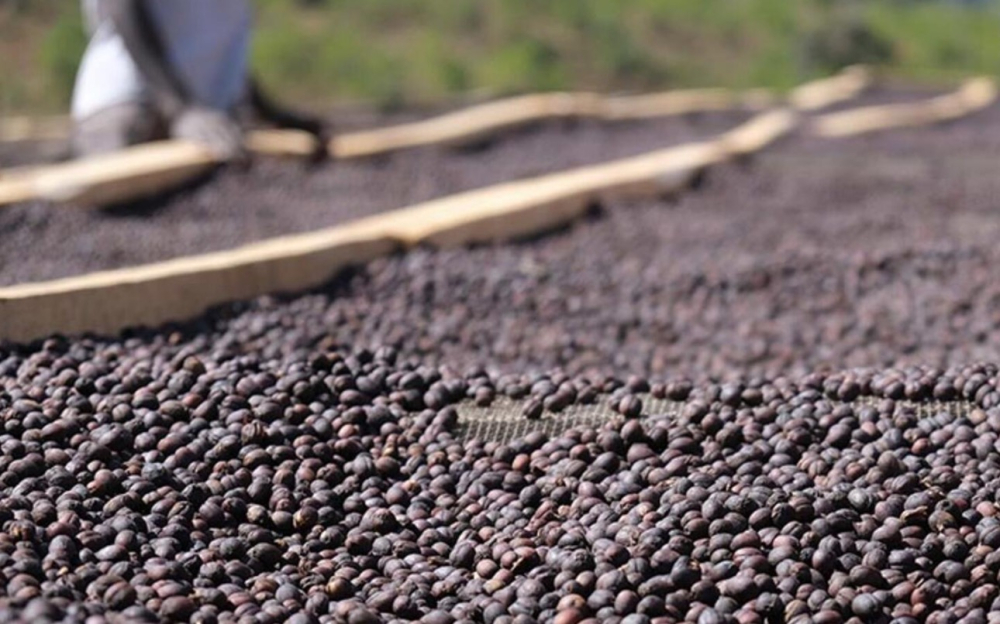
First of all, coffee farmers pick the ripe coffee fruit and put it into the pool for flotation, remove sundries, dust and unripe coffee fruit, and then put the screened coffee fruit into a peeling machine to remove the pulp and retain pectin. Put the raw coffee beans into the pool for 12 to 36 hours of fermentation, let the pectin layer decompose and fall off.
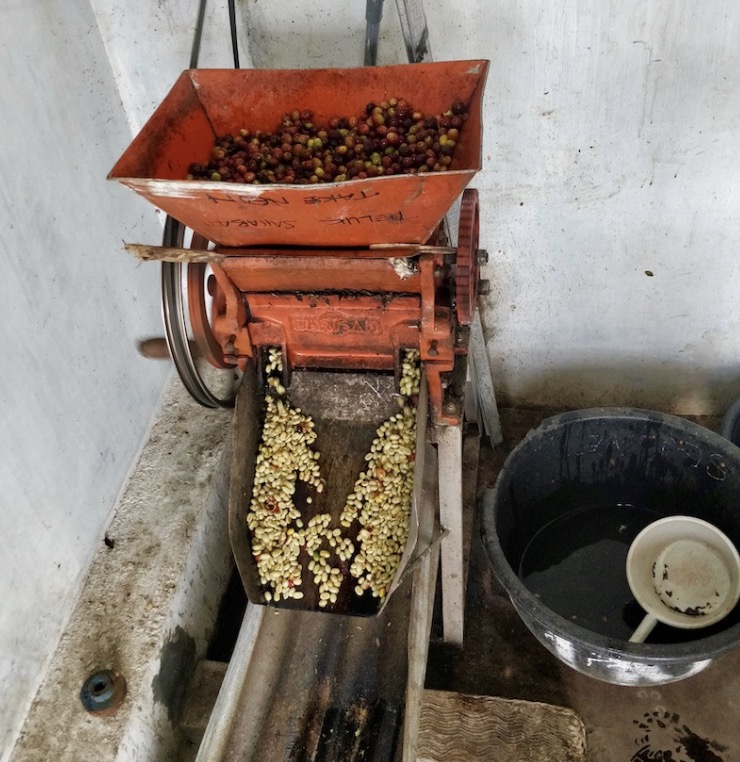
Then rinse the coffee beans with a large amount of water, and then put the coffee beans on the ground for a short drying. In about two days, the water content of the coffee beans reaches 30% Mui 50%. At this time, the beans are in a semi-soft and semi-hard state. Then throw the coffee beans into the shell planer to remove the parchment.
Because the bean body is in a semi-soft and semi-hard state, it takes more force to remove the parchment, so it is easy to squeeze the coffee beans in the case of strong extrusion, resulting in what we call bauhinia beans (squeezed one side). Finally, the treated coffee beans were exposed to the sun for about two days, and the water content reached 12%.
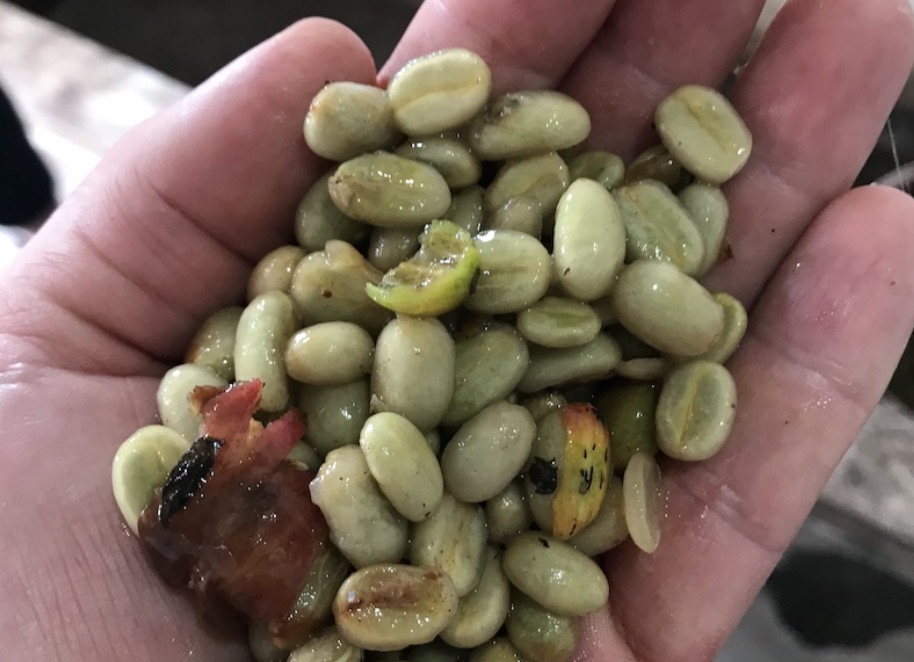
Through the observation of Qianjie Coffee, after drying and taking off the sheepskin, Mantenin's raw beans are blue-green and smell like grass and herbs, shaped like sheep's hooves / horseshoes.
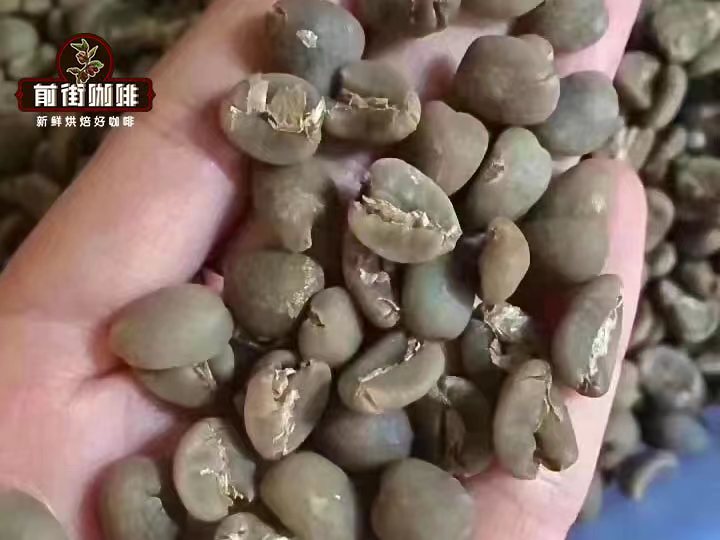
The beans treated in this way have lower acidity than the washing method. Qianjie Coffee believes that Mantenin coffee beans produced in Indonesia have such a mellow flavor, as well as herbs, spices and other unique flavor, not only because of the variety and climate, wet planing treatment is also one of the key factors to create the unique flavor of Mantenin coffee.
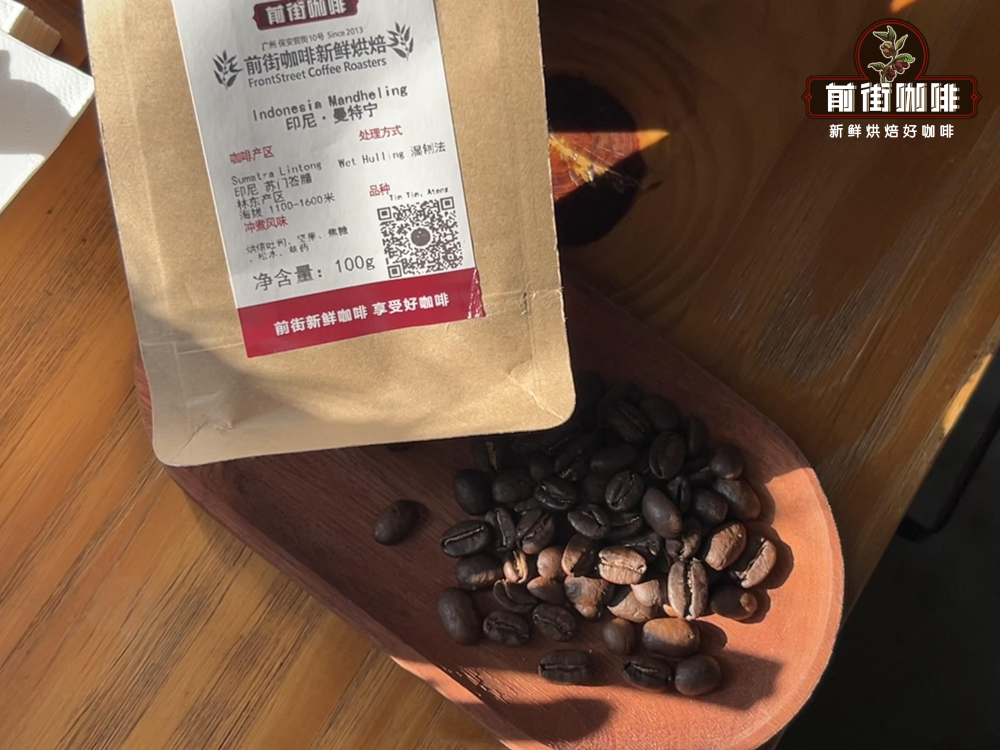
Of course, different quality Mantenin coffee beans are also suitable for wet planing treatment in time, and there will be obvious differences in taste and cleanliness. If some coffee beans are of poor quality (planted at low altitude) and are not properly handled in the drying process, they will be prone to soil and mildew smell.
Important Notice :
前街咖啡 FrontStreet Coffee has moved to new addredd:
FrontStreet Coffee Address: 315,Donghua East Road,GuangZhou
Tel:020 38364473
- Prev

Brazil half-sun treatment method is introduced in detail, what is half-sun treatment? The origin of half-sun treatment.
When it comes to half-sun treatment, some friends may be blinded. What is half-sun? What's the difference between the sun and the sun? Today, let's take you to understand the story of the origin of half-sun treatment. Half-sun treatment in Brazil appeared because at that time, the raw bean treatment in Brazil was mainly the traditional sun treatment, and its quality was compared with that of the traditional sun treatment.
- Next

How does iced American coffee make it bitter? Ice American Coffee Taste making course can instant coffee be made?
Many friends asked Qianjie, "how on earth do you make your iced American coffee? it's so hot and delicious!" American coffee as a permanent sign on the menu of coffee shops, the taste of American coffee in each coffee shop is different. So Qianjie taught everyone the practice of American coffee in Qianjie.
Related
- Beginners will see the "Coffee pull flower" guide!
- What is the difference between ice blog purified milk and ordinary milk coffee?
- Why is the Philippines the largest producer of crops in Liberia?
- For coffee extraction, should the fine powder be retained?
- How does extracted espresso fill pressed powder? How much strength does it take to press the powder?
- How to make jasmine cold extract coffee? Is the jasmine + latte good?
- Will this little toy really make the coffee taste better? How does Lily Drip affect coffee extraction?
- Will the action of slapping the filter cup also affect coffee extraction?
- What's the difference between powder-to-water ratio and powder-to-liquid ratio?
- What is the Ethiopian local species? What does it have to do with Heirloom native species?

